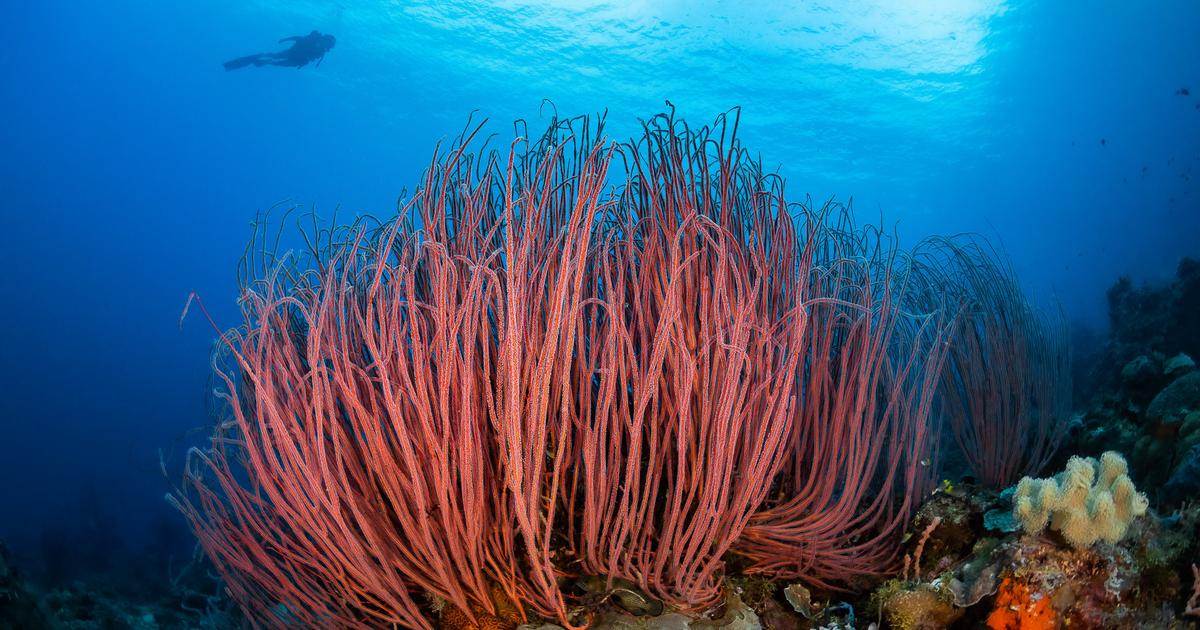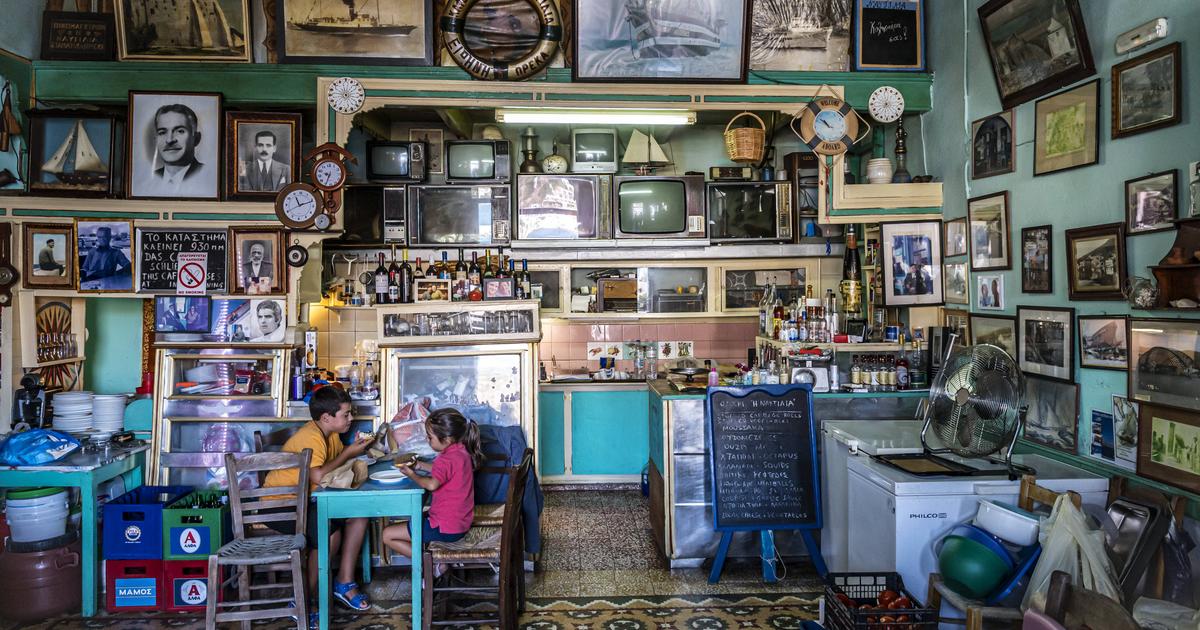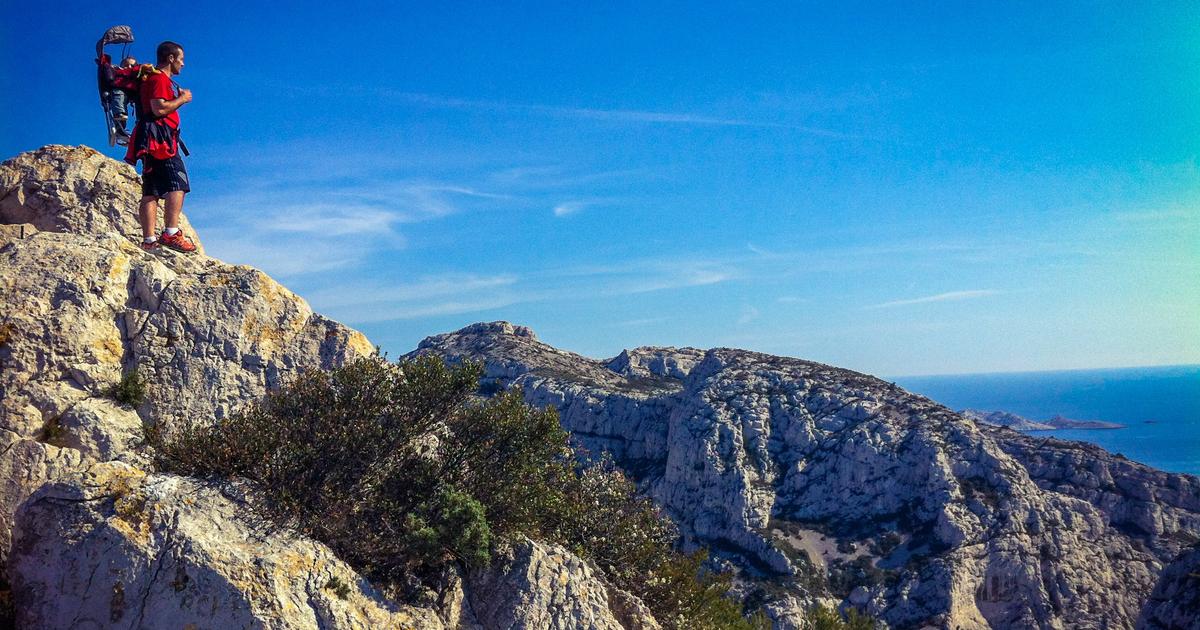"
Underwater, we are guests, we must behave politely
," soberly warns Jean-Michel Cousteau, founder of the Ocean Futures Society association.
We only touch with our eyes
".
Hold onto a rock so you don't get swept away by the current, yes.
Slump on a coral reef by putting your hands down?
Certainly not !
Because the acidity of human fingers acts as a corrosive on coral polyps.
Clinging to the shell of a turtle, no.
Touch a whale, a dolphin, a parrotfish.
To transmit our viruses, our bacteria, to damage their protective mucus?
No.
Give bread or a hard-boiled egg to a fish?
Never !
Bread is not part of the diet of fish or ducks.
Turning over a stone disturbs the crab, shrimp, goby, sea slug stuck to it.
By exposing a small organism that was hidden, it is transformed into prey.
Over the course of scientific discoveries and the evolution of environmental sensitivity, the diver has acquired not only technical gestures during his training but also notions of ecosystems, biodiversity, the interaction between environments.
"
Do you want to find, tomorrow, a wild marine universe as rich as the one you are visiting today?
ignites the oceanographer François Sarano, sponsor of the Show.
You want to have the joy of sharing these marvels with your friends and your children, so be curious about everything, but remain discreet, attentive and light!
By your behavior today, offer future generations of divers the wonder of an intact world, the emotion of an encounter with
sharks
and whales, an underwater adventure as rich as yours
”.
Read alsoFrançois Sarano: “I have never been afraid when swimming with sharks”
A charter available in 27 languages
Founder of the Longitude 181 association, he launched the international responsible diver charter 20 years ago, available in 27 languages (download here).
It enacts rules now adopted by the French Federation of Underwater Studies and Sports (FFESSM) and various other organizations around the world.
"
In 2002, we were UFOs when we were talking about responsible diving,
" he recalls.
Today, the charter is taken up in Algeria,
Switzerland
, Quebec, Malaysia…
”.
Twenty clubs around the world are proactive ambassadors.
For its part, the FFESSM has awarded the Ecosub label to 101 metropolitan and overseas clubs that have proven that they have carried out at least four actions in favor of sustainable development.
“
Divers have always been sensitive to the protection of the seabed and underwater fauna.
I see no difference compared to the diver of 20 years ago, admits Gérard Carnot
, founder of the travel agency Ultramarina.
A feeling shared by Claire Le Saux (Awateha): “
The diver did not wait until 2023 to pay attention to his impact on the environment!
Sensitive to centers that act for the preservation of nature, the sea and populations, current divers are looking for small structures, off the beaten track
”.
Ziad El Zein (Nature Diving) confirms: “
Already very attentive to the state of the seabed, corals, flora, fauna, the diver also thinks about supporting local populations, the carbon footprint of flights and boats
”.
In this cutting-edge, niche market, specialized operators have a duty to fully understand the desires of their target, but also the destinations they offer and which they test themselves.
“Before selecting a hotel, centre,
cruise operator
,
explains Claire Le Saux,
we ask them about their actions
to reduce their environmental impact.
Many have set up the possibility for divers to participate in the collection of waste, work for the regrowth of coral, even
the adoption of a turtle
or another animal to then follow its course with a beacon.
SEE THE FILE -
Responsible tourism, our guide
More ethical travel
In Costa Rica, Catalina Island diving with a stingray.
GREG LECOEUR / Le Figaro Magazine
"
Twenty years ago, our partners were concerned about the protection of their environment: nature, population, fauna and flora, because it is their business
", specifies Ziad El Zein.
"
We avoid too large hotel structures, diving cruises that welcome too many divers,
recognizes Claire Le Saux.
We do not sell dive centers that practice feeding to attract species and structures that offer big game fishing
”.
In the field, the partners know that the ocean is fragile and that its protection guarantees revenue and work for the entire population (food, accommodation, etc.).
If a dive site is polluted or damaged, the sanction is immediate: visitors desert.
It is therefore in everyone's interest to create a virtuous circle: protect the environment in order to continue to be able to earn a decent living.
What if a country destroys its environment (fishing with dynamite, hunting dolphins, etc.)?
"
We are not going there and we will never go
," asserts Ziad El Zein.
For a long time, the diving business was reserved for Europeans or North Americans who established themselves in a country to develop their turnover by bringing their "
knowledge
".
But now, the underwater world is no longer scary and many countries train instructors, such as Tropical Diving in Nosy Be (Madagascar) or Red Sea Diving Safari (Egypt).
Support for local populations
“
We always ask our potential new partners about procedures for recycling waste and the use of plastics
,” admits Gérard Carnot.
Environmental actions on land, which often include a "
fight against plastic
" component, can also be combined with actions on the marine environment.
In Mozambique, Liquid Divers records all marine debris at four well-defined dive sites.
“Data transmitted to
the PADI organization
as part of its Project AWARE's Adopt A Dive Site action.
This provides much-needed information to help change government policies.”
“
We also look at the impact of diving clubs and their commitment to the community where they are based,
analyzes Gérard Carnot.
With a downside: it is unthinkable to give lessons to partners in developing countries where the means are sorely lacking
”.
These specialized TOs rigorously select the diving clubs with which they will work.
“
Our partner Liquid Divers organizes collections for schools and families in need, installs solar panels, collects rainwater,
says Claire Le Saux.
In
Indonesia
, the Safari Bali center works for the preservation of women's work and helps little girls to go to school by raising funds through divers
".
If the subject of the carbon footprint of long-distance travel is still little discussed, it is in tune with the times.
The Ultramarina company thus pays back a contribution taken from its margin to the mutual fund of the Syndicat des Entreprises du Tour Operating (SETO).
“This fund invests in CO2 absorption projects of
the Carbon Livelihoods Fund
,
” underlines Gérard Carnot.
What I like is that a lot of work is going into restoring the mangroves.
As divers, we all know the importance of the mangrove in protecting the seabed and its vital role as a nursery for many marine species”.
Watch out for underwater memories
Buy a dried puffer fish to use as a bedside lamp?
Nay!
In order for it to be bloated, it was necessary to stress it and cause it to die of a heart attack.
Acquire a giant stoup so that it can be transformed into a basin in a bathroom?
Bringing back a conch from the Antilles or the Bahamas?
Irresponsible.
Clams and Queen Conch (
Lobatus gigas
) are protected by the Washington Convention.
If many merchants offered this type of souvenir 40 or 50 years ago, today's shops no longer dare to offer them.
Because customs have evolved.
And customs do not mess with tourists who dare to hide some in their suitcases.
Diving fair.
Palais des Expositions, Porte de Versailles, Paris (M° Balard).
Pavilion 4. Friday 6 January: 10am-9pm.
Saturday 7 and Sunday 8 January: 10am-7pm.
Monday January 9: 10am-3pm.
Admission €14, 2 days €25, 3 days €30.
Foundations of sustainable diving.
Three two-hour workshops (TO, equipment manufacturers, divers) organized by Longitude 181.









